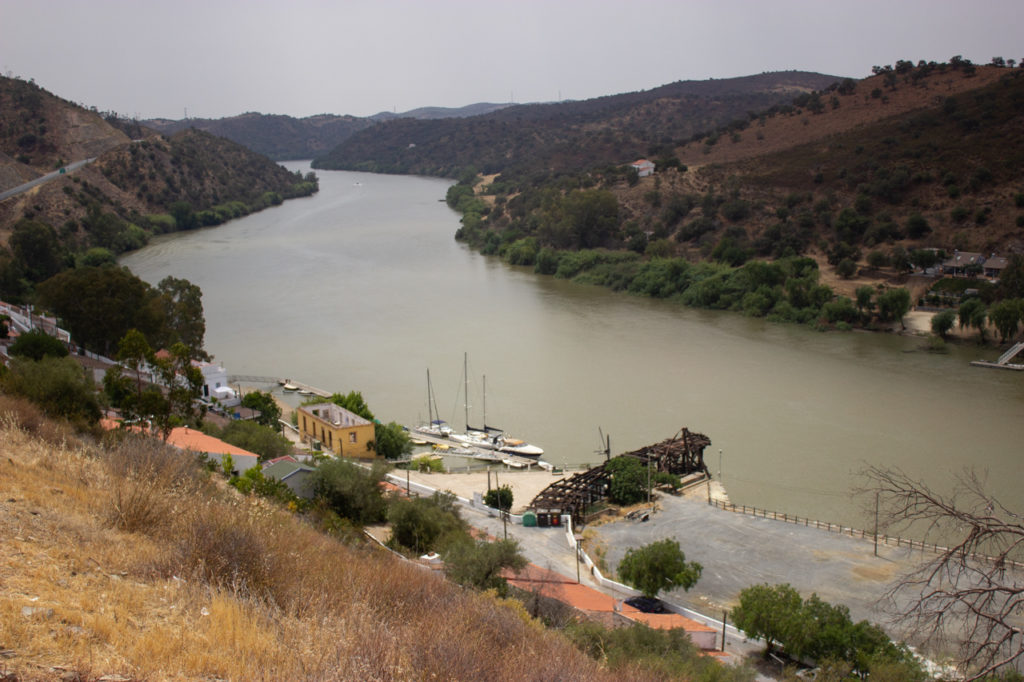The Associação Natureza Portugal|WWF and the World Wide Fund (WWF) of Spain argue that these two countries are planning an «assault on the waters of the Lower Guadiana», within the scope, for example, of the interventions foreseen in the Regional Water Efficiency Plan of the Algarve.
In a statement, these entities warned "of the new abstractions that both countries have planned from the international section of the Guadiana to feed the new irrigation systems in Huelva and Algarve, without prior agreement and to the detriment of the ecological flows necessary for the Estuary."
«Portugal and Spain are planning new abstractions directly from the Guadiana River, without counting on the formal agreement between them, in default of the current international agreement for the management of shared waters between the two countries (the Albufeira Convention), and outside the their obligations to achieve the good condition of the Guadiana Estuary, in accordance with the provisions of the European Union Water Framework Directive», they say.
These associations consider that both countries are “pressured by the strong expansion of intensive irrigation on both sides of the southern border between the two countries, namely the cultivation of small fruits in the greenhouse (strawberries, blueberries, blackberries, raspberries), avocado and orange, both in the Portuguese region of Algarve and in the Spanish province of Huelva».
In the case of Portugal, this new intake is being planned under the Algarve Regional Water Efficiency Plan (PREHA), and a set of investments (SM5) aimed at increasing water supply in the Eastern Algarve, totaling 55 million euros by 2025.
«It is a catchment near Pomarão (Mértola municipality, where the river is once again bordered to its mouth), and its adduction to the Odeleite reservoir, which supplies urban, tourist and especially agricultural uses in the eastern part of the city. region".
In the case of Spain, this involves the consolidation and reinforcement of the Bocachanza catchment, in the same place where the new Portuguese catchment is planned (and where the river Chança meets the Guadiana river, immediately downstream of the Spanish dam at Chança). A second intake is planned by the Andalusia Council under the current Tinto, Odiel and Piedras Hydrological Plan (2016-2021), to reinforce the existing intake, which on average transfers about 30hm3 to those basins, but which can reach 75 hm3 in exceptional situations (ie drought).
“In both cases, the investments are foreseen under the financing of the European Mechanism for Recovery and Resilience, in clear violation of the principle of “not significantly harming” that guides it and which stipulates that “an activity significantly harms sustainable use and protection of water and marine resources, if it is detrimental to the good status or good ecological potential of water bodies, including surface and groundwater, or the good environmental status of marine waters”, say the associations.
In this regard, ANP|WWF and WWF Spain appeal, in this communiqué, to «the different public administrations involved to legally establish and within the scope of a review of the Albufeira Convention, the real availability for possible captures and transfers from the Guadiana River, ensuring a prior and effective assessment of their environmental impacts, and thus guaranteeing the fulfillment of the environmental objectives of improving bodies of water assumed by both countries in compliance with the European Water Framework Directive».
For the two organizations, «the protection and improvement of rivers, wetlands and aquifers in the Algarve and Huelva must be a priority in order to make environmental objectives compatible with the socio-economic development of this cross-border region».
“Until this condition is fulfilled, the Guadiana and its estuary will continue to suffer the disastrous consequences of the lack of coordination in the management of the waters shared by the two countries. By failing to ensure compliance with an ecological flow regime in the estuary, we will be mortgaging ecosystem services as important as the gestation and creation of many fishing species, feeding on sediments from the beaches on the Algarve and Andalusian coasts, or the survival of galleries riparian species that protect us from floods and droughts», they conclude.


















Comments